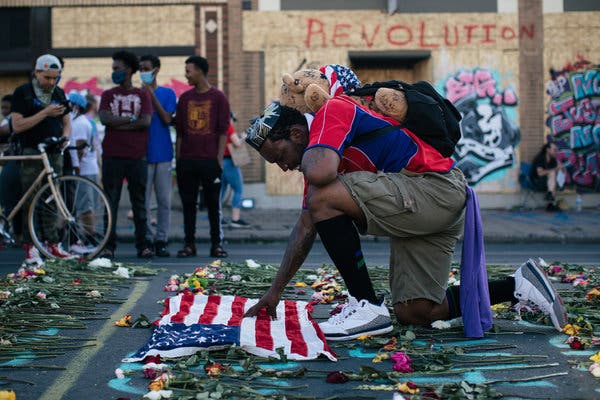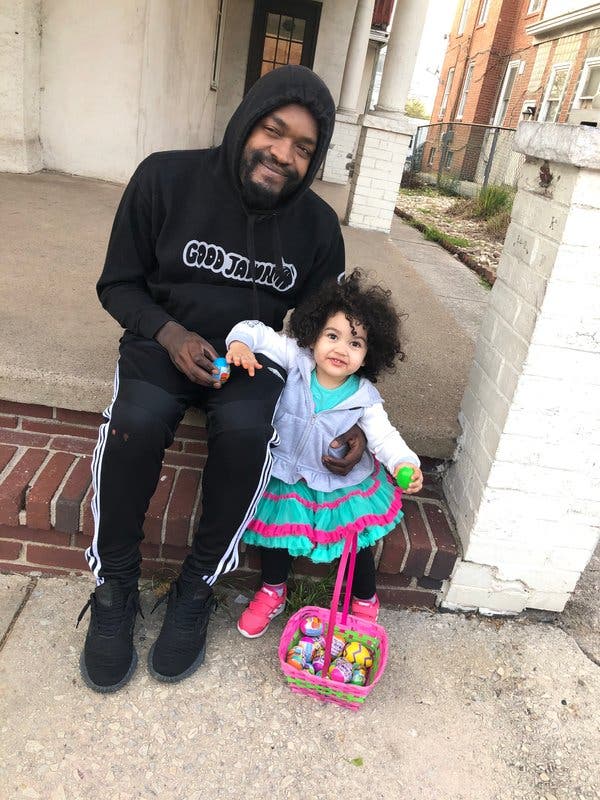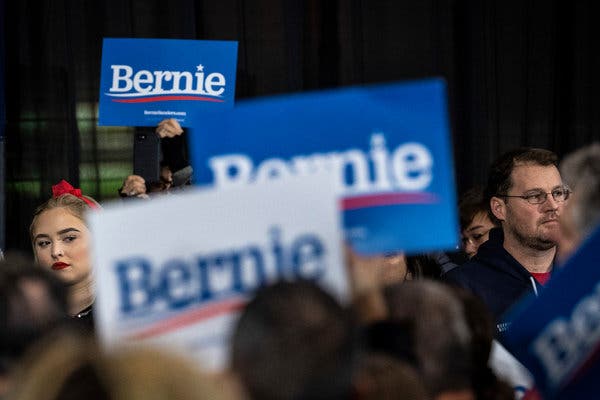Advertisement
Battered by a health crisis and boiling over with fury about racial injustice, many voters are mourning the past, worried about the present and fearful of what comes next.

Brendan Hermanson, 51, a construction worker for three decades, has come through the pandemic healthy and employed. At home in Milwaukee, where he lives with his grown son, he tries to tune out the hostile politics in the country and wonders if he should bother to vote again for President Trump in November or “sit back and watch it crumble.”
In the Philadelphia suburbs, Basil Miles, 27, isn’t as comfortable. He worries about his ability to provide for his pregnant partner and their 3-year-old daughter after he was laid off from his food service job because of the coronavirus. He recently skipped a doctor’s appointment in the city because he feared armed white vigilantes who were threatening black protesters in the area.
“You don’t know what’s going to happen next,” said Mr. Miles, who is black. “There’s still protests, and there’s still stuff getting lit on fire.”
Mr. Miles and Mr. Hermanson are 700 miles apart, leading lives separated by lines of race, age, ideology and income. Yet there’s one opinion they both share: The American experiment is teetering.
“It’s all screwed,” said Mr. Hermanson, who is white. “It seems to me that we’re pretty close to a fall.”

Five months from a crucial presidential election, the usual political debates, campaign events and policy fights have faded into the background for voters battered by a public health crisis, struggling through an economic recession and boiling over with fury over racial inequities. With tens of millions unemployed, more than 110,000 killed by the coronavirus and thousands of people protesting in the streets, Americans see their personal concerns and political choices through a strikingly existential lens — mourning the past, worried about the present and fearful of the future.
In interviews with more than two dozen voters in key political battleground states, Republicans, Democrats and independents of diverse ages, races and social classes expressed worries that their nation had careened off track, with problems no election could easily solve. Fiercely polarized over public health, public safety and, perhaps, truth itself, many people are united only in their collective anxiety.
Mr. Trump has done little to soothe the angst, offering few new policy proposals and plenty of pointed warnings that Democrats would make the country worse. He has offered an incendiary response, invoking “law and order,” promoting conspiracy theories and pushing hard for the nation to reopen despite rising case numbers.
The presumptive Democratic nominee, Joseph R. Biden Jr., has spoken emotionally about those killed by the virus and the death of George Floyd, advocated new police reforms and urged Americans to rise to the challenge of the times. But he has struggled to break though the crush of news and connect with young voters, some of whom desire greater change than the promise of a return to normalcy that has fueled his campaign.
Yara Cabrera, a special-education teacher in Phoenix, blames Mr. Trump for the sometimes chaotic protests, arguing that he stokes racial division and lacks the empathy to help heal the wounds of racism. Ms. Cabrera, a self-identified “strong Democrat” and Latina, also expects that he’ll be re-elected.

